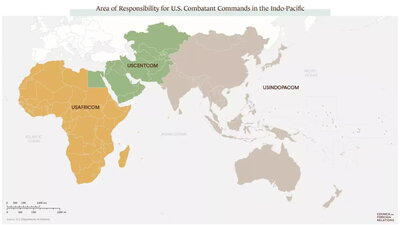The Asian America Otherwise Conference was the culminating conference of the In Plain Sight: Reckoning with Anti-Asian Racism research initiative. This initiative was funded by the Chancellor’s Call to Action to Address Racism & Social Injustice Research Program for 2021-2022. In Plain Sight has included a series of public lectures and seminars featuring leading scholars in Asian American studies and related fields. The Asian America Otherwise Conference took place May 6-7, 2022 at the I Hotel in Champaign.
The conference’s first panel, “Other Politics, Against Empire,” featured Moon-Ho Jung, Professor in the Department of History at the University of Washington; Manu Karuka, Assistant Professor in the Department of American Studies at Barnard College; and Bilal Nasir, Chau Mellon Postdoctoral Fellow in the Department of Asian American Studies at Pomona College. While these scholars’ presentations differed in terms of source materials and theoretical approaches, they were nonetheless united around certain common themes. All three presentations sought to reveal and critique the politics and violence of empire, both within and beyond the United States’ borders. This included highlighting issues such as white supremacy, racism, and surveillance culture. Furthermore, these three scholars showed us how these wider socio-political dynamics related to the recent incidents of racism and violence against Asians and Asian Americans.
The first presenter, Professor Jung, began his talk, “Why Loyalty Will Get Us Nowhere,” by reading out a recent email exchange between himself and the leadership of the Association for Asian American Studies (AAAS). Professor Jung had written to AAAS following an email they sent out in the aftermath of the January 6, 2021 attack on the United States Capitol by supporters of former president Donald Trump. The email had condemned the far-right insurrection and affirmed AAAS’s support of United States democracy. In his response to the email, Professor Jung stated that he found AAAS’s uncritical support of United States democracy problematic because it ignored the inherent links between our democracy, white supremacy, and imperialism. Arguing that the United States functions as an empire within and beyond its borders, Professor Jung insisted that AAAS’s statement of support of United States democracy prevented AAAS from expressing a commitment to true democracy.
Building from this example, Professor Jung explained how Asian Americans have often turned to a discourse of loyalty vis-à-vis the United States, foregrounding their desire and right to belong to the nation. However, because of the imperial, white supremacist underpinnings of the state, Professor Jung encouraged Asian Americans to seek an alternative beyond that of loyalty. As he put it, “why would we [Asian Americans] want to join the racial and colonial order called the USA?” In the second part of his talk, he focused on the term “sedition,” showing how the label “seditious” has been used in the United States as “a way of silencing ‘unruly subjects’ from circulating revolutionary ideas.” These “seditious” individuals, however, have productively sought to challenge empire in the United States context across history. Professor Jung concluded his talk by encouraging Asian Americans to stake out a position that is simultaneously critical of empire and the anti-Asian racism at the center of it.

Professor Jung’s presentation was followed by Professor Karuka’s, entitled “Imperialist Futures in the Indo-Pacific.” Professor Karuka’s focus was on the invented “Indo-Pacific” region. Professor Karuka underlined the political, military, and economic importance of this region, particularly for the relationship between the United States and China. A significant portion of his talk demonstrated the fraught and complicated nature of how the Indo-Pacific has been defined in terms of geography and race. Drawing on an impressive array of government documents and statements from state officials, Professor Karuka revealed patterns and contradictions in how the Indo-Pacific has been conceptualized and the variety of motives of different political players in the region. Along the way, he underlined how the United States have prioritized their military and economic initiatives in the Indo-Pacific in response to what they see as the threat of China’s “inherently different civilization and ideology.”
At the end of his talk, Professor Karuka connected the Indo-Pacific context back to recent incidents of anti-Asian American racism taking place in the United States. He turned to the specific example of the Department of Justice’s “China Initiative,” launched in 2018 to combat Chinese espionage and intellectual property theft in the United States. To these ends, the initiative had investigated academics in the United States who were working in partnership with Chinese institutions. Criticized as racial profiling, it was shut down in February 2022. Professor Karuka suggested that the United States national security imperatives in the Indo-Pacific can be read alongside cases like the China Initiative, which racialized Asians working in the United States to deem them threats.
The final panelist was Postdoctoral Fellow Bilal Nasir, who gave a talk entitled “Thinking About Critique from the Muslim Left: Terror, Suspicion, and Islam.” The subject of his talk was the reactions of pious Muslim Americans to the FBI surveillance of their communities. Building from the ethnographic research he had conducted in the greater Los Angeles area, Professor Nasir argued that the LA Muslim American communities were able to “think with Islamic tradition” as a way of countering the “surveillance and suspicion culture” promoted by the state. Professor Nasir began by laying out the context of LA Muslim Americans’ relationship with the FBI. The FBI, Professor Nasir explained, uses informants embedded within this community to both detect extremism and recruit more informants. At the same time, Muslim American leaders are asked to report any cases of extremism within their communities to the FBI—which ironically led to a case in which these leaders reported a man to the FBI who was actually an FBI informant. Professor Nasir pointed out how state surveillance of these communities was producing these “bad guys” rather than finding them. He also argued that it served the FBI agenda for Muslim Americans to become suspicious of their own community members and think that they have an “extremism problem.”

The presentation then turned to discussing how the pious Muslim Left have launched a critique of the United States security state. Professor Nasir explained how leaders of the LA Muslim community have emphasized the Islamic principle of thinking well of other Muslims by default, unless presented with actual evidence to the contrary. Thus, instead of being suspicious of one another, these community members were encouraged to embrace a discourse of sociality and care. This allowed them to approach each other with trust while remaining distrustful of FBI surveillance and policing, even in the aftermath of the 2015 San Bernadino shootings. In sum, Professor Nasir’s research demonstrated that fostering these “communities of care” was an effective tool against surveillance and suspicion culture. His case study also showed how an Islam-based critique, rather than a secular one, could “serve as a base for political activism.”
A brief question and answer session concluded the panel. In response to audience questions, Professor Nasir contextualized his research within the history of 20th century Muslim American political movements. Professor Karuka addressed how human rights documents produced by the United States related to the state’s security imperatives in the Indo-Pacific, highlighting how the United States does not hold itself to the standards set in these documents. Professor Jung spoke about the need to critique the idea of liberal citizenship while still providing a path to citizenship for the undocumented. At the very end of the session, the panelists touched briefly on how the United States’ history of violence against Asians was not only a question of race, but also of gender.